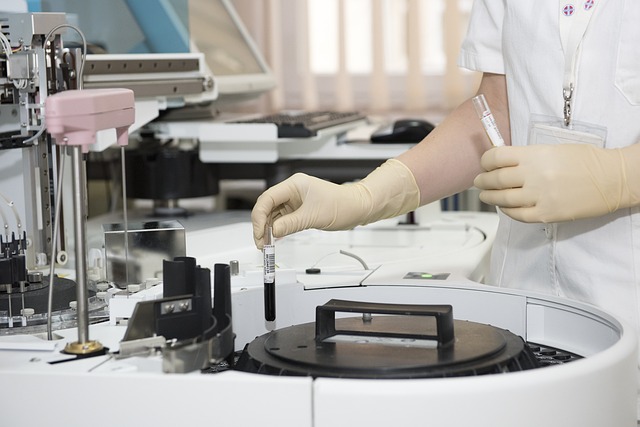Wisdom Teeth Removal: How to Whiten Teeth Post-Surgery
Wisdom teeth removal is a common dental procedure that many of us have either experienced or will face in the future. While the focus is often on the recovery process and pain management, one aspect that often gets overlooked is how to maintain a radiant smile after the surgery. As our wisdom teeth are extracted, we may find ourselves wondering how to whiten our teeth and restore their natural brilliance. Fear not, for in this article, we will delve into the world of post-surgery teeth whitening, equipping you with the knowledge and tools to achieve a pearly white smile that will leave you feeling confident and ready to embrace the world. So, let’s explore the secrets of enhancing your smile after wisdom teeth removal, ensuring that your journey to brighter, whiter teeth is both successful and hassle-free.
1. Understanding the Process: Wisdom Teeth Removal and Its Aftermath
Wisdom teeth removal is a common dental procedure that involves extracting the third molars located at the back of your mouth. While not everyone needs to have their wisdom teeth removed, it is often recommended to prevent potential complications in the future. Understanding the process and what to expect afterward can help alleviate any concerns or anxieties you may have.
The process of wisdom teeth removal typically begins with a thorough examination by your dentist or oral surgeon. X-rays are taken to evaluate the position and condition of your wisdom teeth. If it is determined that removal is necessary, the procedure can be performed under local anesthesia, sedation, or general anesthesia, depending on the complexity of the extraction. During the procedure, an incision is made in the gum tissue to access the tooth. In some cases, the tooth may need to be sectioned before removal. Once the tooth is extracted, the incision is stitched back up, and gauze is placed to control bleeding. The entire process usually takes around 45 minutes.

2. The Impact of Wisdom Teeth Removal on Teeth Discoloration
Wisdom teeth removal is a common dental procedure that can have an impact on teeth discoloration. While it may not directly cause discoloration, there are several factors associated with the extraction process that can contribute to the discoloration of teeth. Here are some key points to consider:
- 1. Trauma and bruising: During the extraction, the surrounding tissues and gums may experience trauma and bruising. This can lead to temporary discoloration of the teeth in the immediate area.
- 2. Medications and mouth rinses: After the procedure, dentists often prescribe medications and mouth rinses to aid in healing and prevent infection. Some of these medications and rinses may contain ingredients that can cause temporary discoloration of the teeth. It is important to follow the dentist’s instructions and use these products as directed.
- 3. Changes in oral hygiene routine: Following wisdom teeth removal, patients may need to modify their oral hygiene routine to accommodate the healing process. This can include gentle brushing and avoiding certain foods. These changes may temporarily affect the appearance of teeth, but proper oral care should restore their natural color.
While teeth discoloration can occur after wisdom teeth removal, it is usually temporary and should resolve with time and proper oral care. If discoloration persists or worsens, it is recommended to consult with a dentist to determine the underlying cause and explore potential treatment options.

3. Effective Strategies for Whitening Teeth After Wisdom Teeth Surgery
After wisdom teeth surgery, it is important to take extra care of your teeth to ensure optimal healing and minimize the risk of complications. Here are some effective strategies for whitening your teeth post-surgery:
1. Practice good oral hygiene: Brush your teeth gently twice a day using a soft-bristled toothbrush. Be careful around the surgical site and avoid applying excessive pressure. Use a fluoride toothpaste to strengthen your enamel and prevent tooth decay. Additionally, floss daily to remove any food particles or plaque that may have accumulated.
2. Avoid staining foods and drinks: Certain foods and beverages have the potential to stain your teeth, making them appear dull or discolored. Limit your consumption of coffee, tea, red wine, and dark-colored fruits like berries. If you do indulge in these substances, make sure to rinse your mouth with water afterward to minimize their effects on your teeth.

4. Professional Teeth Whitening Options for Post-Surgery Patients
After undergoing oral surgery, it’s important for patients to take special care of their teeth and gums. Professional teeth whitening options can be a great way for post-surgery patients to enhance their smiles and regain confidence. Here are some effective and safe options to consider:
In-office teeth whitening: This is a highly popular method that guarantees immediate results. Dentists use a strong bleaching gel that is applied directly to the teeth, and then activate it using a special light or laser. The procedure is quick, usually taking around 1-2 hours, and can lighten teeth by several shades. Dentists also take precautions to protect sensitive areas during the process, ensuring a comfortable experience for post-surgery patients.
Take-home whitening kits: These kits are prescribed by dentists and provide patients with customized trays and whitening gel. Patients can apply the gel to the trays and wear them for a specific period, usually a few hours each day, until they achieve the desired level of whiteness. Take-home whitening kits are convenient for post-surgery patients as they can be used in the comfort of their own homes, at their own pace. Dentists provide clear instructions and monitor progress to ensure safety and effectiveness.

5. Natural and DIY Remedies for Brightening Teeth Following Wisdom Teeth Extraction
After wisdom teeth extraction, it’s common for teeth to appear slightly dull or discolored. Fortunately, there are several natural and DIY remedies that can help brighten your teeth and restore their natural shine. Here are some effective methods to try:
1. Oil pulling: This ancient Ayurvedic practice involves swishing a tablespoon of coconut oil in your mouth for 15-20 minutes, pulling it through your teeth. This helps remove toxins and stains, promoting whiter teeth. Remember to spit out the oil afterward and rinse your mouth thoroughly.
2. Baking soda and hydrogen peroxide paste: Make a paste by mixing a teaspoon of baking soda with a few drops of hydrogen peroxide. Apply this mixture to your teeth using a soft toothbrush or your finger, gently scrubbing in circular motions. Rinse thoroughly afterward. Baking soda acts as a natural abrasive, while hydrogen peroxide has bleaching properties, making this combination effective in brightening teeth.
6. Precautions and Guidelines for Safe Teeth Whitening After Wisdom Teeth Removal
After undergoing wisdom teeth removal, it is important to take certain precautions and follow specific guidelines to ensure safe teeth whitening. Here are some essential tips to keep in mind:
- Wait for proper healing: It is crucial to wait for the recommended healing time after wisdom teeth removal before attempting any teeth whitening procedures. This typically takes around 1-2 weeks, but it may vary depending on individual circumstances. Rushing into teeth whitening too soon can potentially cause sensitivity and irritation.
- Consult with your dentist: Before starting any teeth whitening regimen, it is advisable to consult with your dentist. They will evaluate your oral health and provide personalized recommendations based on your specific situation. Your dentist can also determine if it is safe to proceed with teeth whitening after wisdom teeth removal.
- Choose a gentle whitening method: Opt for a teeth whitening method that is gentle on your teeth and gums. Avoid harsh chemicals and abrasive substances that can cause further irritation or damage to the healing areas. Look for whitening products that are specifically designed for sensitive teeth or consult with your dentist for professional whitening options.
- Follow instructions carefully: Whether you choose at-home teeth whitening kits or professional treatments, always follow the instructions provided. Overusing or misusing whitening products can lead to adverse effects, such as tooth sensitivity or enamel damage. Adhering to the recommended usage guidelines will help achieve optimal results while minimizing risks.
- Maintain good oral hygiene: Prioritize proper oral hygiene practices to support the healing process and maintain a healthy smile. Brush your teeth twice a day using a soft-bristled toothbrush and fluoride toothpaste. Don’t forget to floss daily to remove food particles and plaque buildup. Additionally, consider using a mouthwash recommended by your dentist to further enhance oral hygiene.
- Monitor any changes or concerns: Pay close attention to any changes or concerns you may experience during or after teeth whitening. If you notice increased tooth sensitivity, gum irritation, or any other unusual symptoms, contact your dentist promptly. They can assess the situation and provide appropriate guidance to ensure your safety.
7. Maintaining a Radiant Smile: Long-Term Care for Teeth Whitened After Wisdom Teeth Surgery
After undergoing wisdom teeth surgery, many individuals choose to brighten their smiles through teeth whitening treatments. It is important to remember that maintaining a radiant smile requires long-term care to ensure the effectiveness and longevity of the whitening results. Here are some essential tips to help you take care of your teeth after whitening, especially following wisdom teeth surgery:
1. Practice good oral hygiene:
- Brush your teeth at least twice a day using a soft-bristled toothbrush and fluoride toothpaste.
- Floss daily to remove plaque and prevent staining between teeth.
- Rinse your mouth with an antiseptic mouthwash to help kill bacteria and freshen breath.
2. Avoid stain-causing foods and beverages:
- Avoid or limit consumption of coffee, tea, red wine, and dark-colored sodas as they can stain your teeth.
- Quit smoking or using tobacco products, as they not only stain teeth but also pose serious health risks.
- Consider using a straw when drinking beverages to minimize contact with your teeth.
Frequently Asked Questions
Q: Why is it necessary to have wisdom teeth removed?
A: Wisdom teeth often cause problems such as crowding, misalignment, or impaction, leading to pain and potential oral health issues. Removing them can prevent further complications and maintain a healthier smile.
Q: Can wisdom teeth removal cause discoloration of the teeth?
A: Wisdom teeth removal itself does not directly cause tooth discoloration. However, post-surgery changes in oral hygiene routines, dietary habits, or medication use can contribute to tooth staining or yellowing.
Q: How can I prevent tooth discoloration after wisdom teeth removal?
A: To minimize the risk of tooth discoloration, it’s important to maintain good oral hygiene by brushing and flossing regularly. Additionally, reducing the consumption of staining foods and drinks like coffee, tea, and red wine can help prevent tooth discoloration.
Q: Are there any specific oral care products that can help whiten teeth after wisdom teeth removal?
A: There are several whitening toothpaste and mouthwash options available on the market that can help remove surface stains and maintain a brighter smile. However, it’s important to consult with your dentist before using any whitening products post-surgery to ensure they are safe for your individual case.
Q: How long should I wait after wisdom teeth removal to start whitening my teeth?
A: It is generally recommended to wait at least a week after wisdom teeth removal before beginning any teeth whitening procedures. This allows sufficient time for the extraction sites to heal and reduces the risk of complications.
Q: Are there any natural remedies that can whiten teeth after wisdom teeth removal?
A: While natural remedies such as baking soda, hydrogen peroxide, or activated charcoal may have some teeth whitening properties, it is advisable to consult with your dentist before using them. They can provide guidance on their effectiveness and potential side effects.
Q: Can professional teeth whitening be done after wisdom teeth removal?
A: In most cases, professional teeth whitening can be performed after wisdom teeth removal. However, it is essential to consult with your dentist to ensure that your mouth has fully healed and is ready for the procedure.
Q: How long does it usually take to notice results when whitening teeth after wisdom teeth removal?
A: The time required to notice results varies depending on the method used and the individual’s teeth. Some may see improvements within a few days, while others may take several weeks. Patience and consistent oral care practices are key for achieving noticeable results.
Q: Are there any potential risks or side effects associated with teeth whitening after wisdom teeth removal?
A: While teeth whitening is generally considered safe, some individuals may experience tooth sensitivity or gum irritation during or after the process. Following the instructions provided by your dentist or the whitening product manufacturer can help minimize these risks.
Q: Can I undergo teeth whitening if I have other dental issues related to my wisdom teeth removal?
A: If you have any ongoing dental issues related to your wisdom teeth removal, it is crucial to address those concerns first before considering teeth whitening. Consulting with your dentist will help determine the best course of action for your specific situation.
To Conclude
In conclusion, wisdom teeth removal is a common dental procedure that can lead to temporary discoloration of teeth. However, there are several effective ways to whiten your teeth post-surgery and restore their natural shine.
Firstly, maintaining good oral hygiene is crucial. Brushing your teeth twice a day with a whitening toothpaste and flossing regularly can help remove surface stains and prevent further discoloration.
Secondly, incorporating whitening products into your dental routine can provide noticeable results. Utilizing over-the-counter whitening strips, gels, or trays, as recommended by your dentist, can help lighten your teeth and remove stubborn stains.
Additionally, natural remedies such as baking soda and hydrogen peroxide can be used cautiously to whiten teeth. However, it’s essential to follow the instructions and consult your dentist before trying any home remedies.
Furthermore, avoiding certain foods and beverages, such as coffee, tea, and red wine, can help prevent further staining. If consumed, rinsing your mouth with water afterward can minimize their effects on your teeth.
Lastly, professional teeth whitening treatments performed by your dentist can offer the most effective and long-lasting results. They have access to advanced techniques and concentrated whitening agents, ensuring a safe and optimal outcome.
Remember, everyone’s teeth respond differently to whitening methods, so patience is key. It’s essential to consult with your dentist to determine the best approach for your specific situation.
By following these recommendations, you can confidently restore the brightness of your smile after wisdom teeth removal. Embrace the journey towards whiter teeth and enjoy the renewed confidence it brings.






